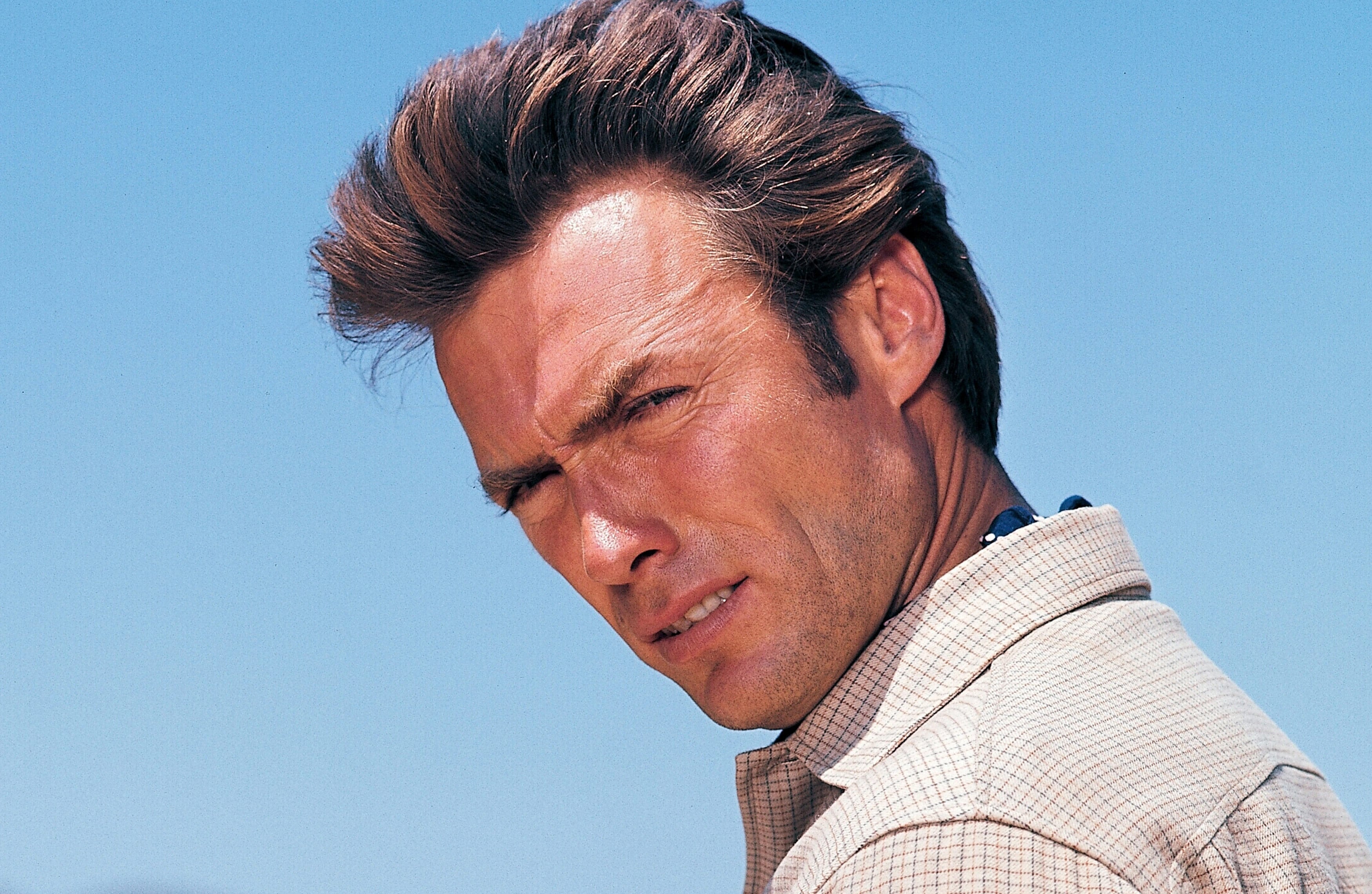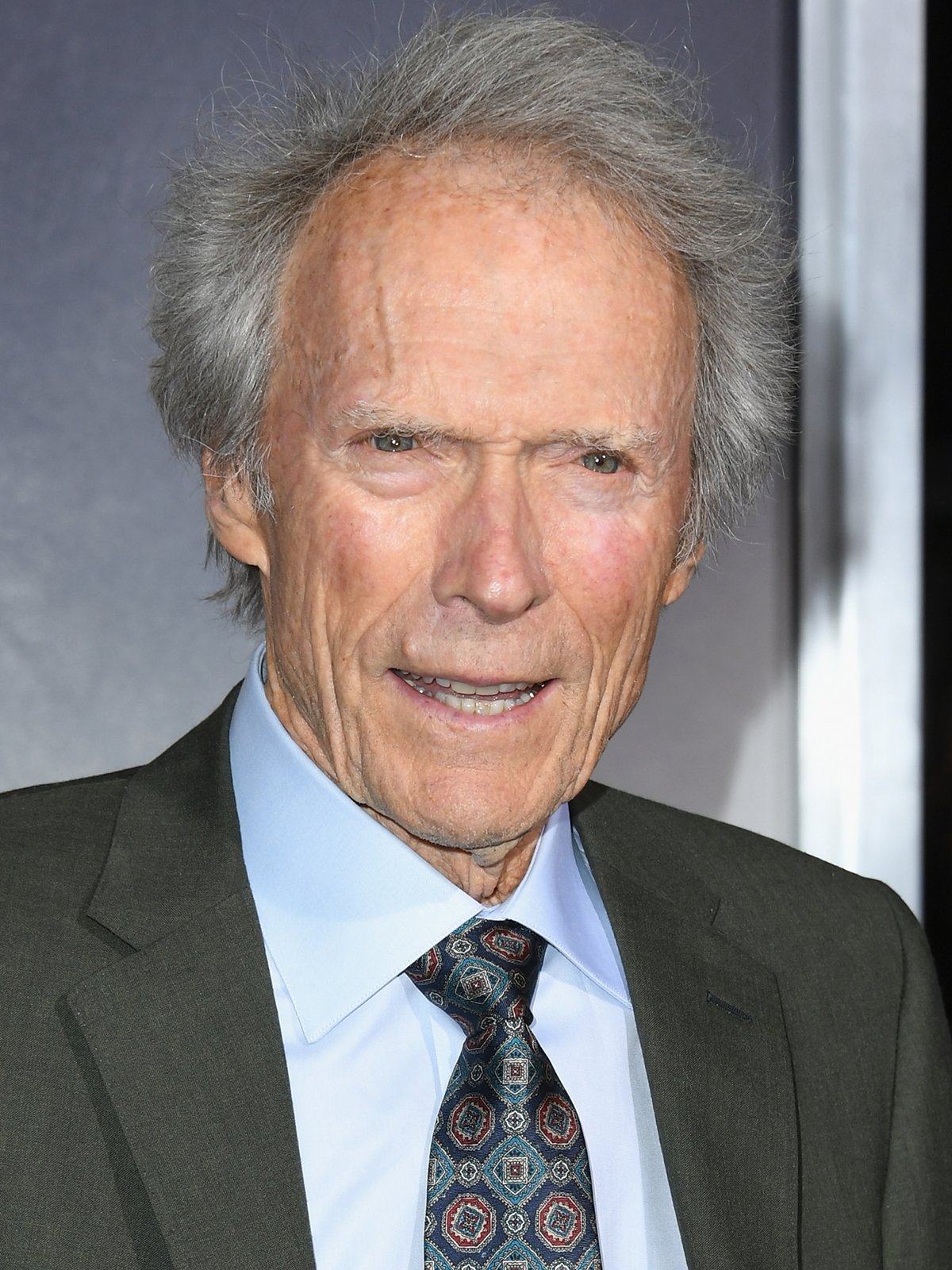Clint Eastwood Kicked Off Jimmy: The Legend Behind The Man
Have you ever heard a whisper about a Hollywood legend making a tough call, a moment where someone, perhaps a "Jimmy," found themselves suddenly out of the picture because of a star like Clint Eastwood? It's a fascinating thought, isn't it? These kinds of stories, whether completely true or a bit of Tinseltown folklore, really stick with people, and they often tell us something about the powerful figures involved. We're going to explore the idea of "Clint Eastwood kicked off Jimmy," looking at the man's long-standing reputation and what such an event might signify in the world of filmmaking.
When we talk about Clint Eastwood, we're discussing a person whose career has spanned decades, both in front of and behind the camera. He's known for a certain kind of presence, a very distinct style that has shaped countless films. So, when a phrase like "Clint Eastwood kicked off Jimmy" comes up, it immediately sparks curiosity. It makes you wonder what kind of situation could lead to such a decisive action, and what it says about the famed director and actor.
This article aims to unpack the idea behind this intriguing phrase, examining the enduring image of Clint Eastwood and why stories of his firm leadership resonate with fans and industry watchers alike. We'll consider the elements of his public persona that make such a scenario seem plausible, and perhaps, even a little bit expected, in a way.
- Ryan Reynolds Drama
- Michael Caine Documentary
- Harrison Ford On The View 2025 Video
- Robert De Niro Meet The Parents
- Robert Downey Jr Haircut
Table of Contents
- Who is Clint Eastwood? A Look at a Hollywood Icon
- The Story of "Clint Eastwood Kicked Off Jimmy" – Fact or Hollywood Folklore?
- Why Such Stories Stick Around
- What We Can Learn from Hollywood's Tough Figures
- Frequently Asked Questions About Clint Eastwood's Professional Conduct
- Conclusion
Who is Clint Eastwood? A Look at a Hollywood Icon
Early Life and Rise to Stardom
Clint Eastwood's journey to becoming a household name is a remarkable one, a bit like a classic Western story itself. He first gained widespread fame playing the "Man with No Name" in Sergio Leone's spaghetti Westerns during the 1960s. These roles, you know, established his quiet, steely-eyed persona, which has really stayed with him throughout his career. It was a look and a way of carrying himself that just clicked with audiences, making him an instant icon of American cinema.
From those dusty Western towns, Eastwood moved on to portray Dirty Harry Callahan, a no-nonsense San Francisco police inspector, further cementing his image as a tough, uncompromising figure. This role, actually, resonated with many people who appreciated his straightforward approach to justice. His acting choices consistently reinforced a public image of a person who gets things done, without a lot of fuss or unnecessary talk.
Directing Career and Distinctive Style
Beyond his acting, Clint Eastwood has made a significant mark as a director, earning multiple Academy Awards for his work. His directing style is often described as efficient and economical, focusing on strong narratives and character performances. He tends to work quickly, and that, arguably, contributes to a very focused atmosphere on his film sets.
- Cillian Murphy Height
- Gary Oldman Hannibal Makeup
- Matthew Mcconaughey Alright Alright Alright Movie
- Christian Bale Kids
- Matthew Mcconaughey Devil Movie
He's known for being prepared and for expecting the same from his cast and crew. This approach, you might say, is part of what makes his films so impactful. It's a kind of leadership that values directness and getting straight to the point, which, in a way, aligns with the tough characters he often played. This directness can sometimes lead to stories about firm decisions, like someone being "kicked off," because his sets are typically places where time and effort are highly valued.
Personal Details & Biography
| Detail | Information |
|---|---|
| Full Name | Clinton Eastwood Jr. |
| Born | May 31, 1930 (Age: 93 as of May 2024) |
| Birthplace | San Francisco, California, U.S. |
| Occupation | Actor, Film Director, Producer, Composer |
| Years Active | 1955–present |
| Notable Roles | The Man with No Name (Dollars Trilogy), Dirty Harry, William Munny (Unforgiven), Frankie Dunn (Million Dollar Baby) |
| Directing Style | Efficient, minimalist, often uses single takes, prefers natural lighting. |
| Awards | Multiple Academy Awards (Best Director, Best Picture), Golden Globes, etc. |
The Story of "Clint Eastwood Kicked Off Jimmy" – Fact or Hollywood Folklore?
The Persona of Decisive Action
The phrase "Clint Eastwood kicked off Jimmy" likely stems from the public's perception of Eastwood as a man of action and few words, someone who doesn't tolerate nonsense. This persona, you know, has been carefully crafted over decades through his iconic roles and his reputation as a no-frills director. It's almost as if people expect him to be decisive, to cut to the chase, and to remove obstacles that stand in the way of his vision.
Consider the image of him as a marksman in a game, someone who might not have high attack speed but whose every shot counts, hitting with significant impact. That, basically, mirrors his directorial style. He doesn't waste time with endless takes or unnecessary discussions. When a problem arises, he's the type who would address it directly and effectively, rather than letting it linger. This kind of reputation, naturally, gives rise to stories of swift, firm decisions, whether they are literal or symbolic.
When Tough Decisions Are Made
In any high-pressure environment like a film set, especially one run by a director with a clear artistic vision, tough decisions are sometimes unavoidable. If a "Jimmy" were, say, consistently late, unprepared, or disruptive, it's not hard to imagine a scenario where a director like Eastwood might make a quick call. He's known for valuing professionalism and efficiency, so, in that case, anything that hinders the production could be seen as a direct challenge to his method.
The idea of "kicking someone off" doesn't necessarily mean a dramatic, public confrontation. It could be a quiet conversation, a firm but polite dismissal, or simply a decision not to work with someone again. The story, however, becomes more dramatic in the retelling, because, you know, that's how Hollywood legends are often born. It's about the perceived power dynamic and the unwavering resolve of a figure like Eastwood.
The Impact on Set Dynamics
A director's reputation for making firm decisions, even if they involve removing someone from a project, can shape the entire atmosphere of a film set. When people know that inefficiency or unprofessionalism won't be tolerated, it tends to encourage everyone to bring their A-game. It creates an environment where everyone understands the expectations, and, you know, they know what could happen if those expectations aren't met.
This approach, in some respects, can be seen as a way to maintain control and ensure the project stays on track. It's like facing Clint in a game; you wouldn't want to be caught off guard, especially if he's got his "tank, mage, or fighter that have CC" with him, meaning his core team is also very strong and supportive of his methods. Everyone on set would be aware that the director is serious about the work, and that, arguably, leads to a smoother, more focused production, even if it means some tough calls along the way.
Why Such Stories Stick Around
Public Fascination with Celebrity Families
People are just naturally curious about the lives of celebrities, especially those who keep a somewhat private profile, like Clint Eastwood. We often wish for a glimpse behind the curtain, perhaps a reality series on his children, where we might, you know, find out about more siblings or unexpected family connections. This deep interest in their personal lives extends to their professional conduct too.
When a story, even a rumored one, surfaces about a celebrity's firm actions, it feeds into this curiosity. It makes them seem more real, more human, and yet still larger than life. The idea of "Clint Eastwood kicked off Jimmy" is appealing because it fits neatly into the narrative we've built around him: a powerful, no-nonsense figure who commands respect and takes charge. It's a tale that reinforces his established image, and that, basically, makes it memorable.
The "No-Nonsense" Reputation
Clint Eastwood's reputation as a "no-nonsense" individual is a huge part of why stories like "kicked off Jimmy" resonate so much. He's consistently portrayed characters who are tough, self-reliant, and who don't back down from a challenge. This image has been cultivated over decades, and, you know, it's deeply ingrained in the public consciousness.
When people hear about him making a decisive move, it simply confirms what they already believe about him. It’s not shocking; it’s almost expected, in a way. This consistent portrayal, both on and off screen, makes any story of firm leadership feel authentic to his character. It's the kind of story that, apparently, just feels right for someone like him.
What We Can Learn from Hollywood's Tough Figures
Leadership and Accountability
The stories, real or imagined, about figures like Clint Eastwood making tough calls offer some interesting lessons about leadership. A leader who is willing to hold people accountable, even if it means difficult conversations or personnel changes, often earns a different kind of respect. It shows that they are serious about the work and about achieving the best possible outcome. This, arguably, creates a culture where everyone understands their responsibilities.
In a film production, where so many moving parts need to align perfectly, clear accountability is essential. If someone isn't pulling their weight, it can impact the entire team and the final product. A leader who addresses this head-on, even if it's uncomfortable, ensures that the project maintains its integrity. It's about setting a standard, and that, you know, is a very powerful thing.
Maintaining Vision and Control
For a director, especially one with a strong personal vision like Clint Eastwood, maintaining control over the creative process is incredibly important. Every decision, from casting to crew, impacts the final film. If an individual, like a hypothetical "Jimmy," is disrupting that vision or making it harder to achieve, a director might feel compelled to act. This, in some respects, is about protecting the artistic integrity of the project.
It's not just about being tough for the sake of it; it's about ensuring that the director's artistic goals are met. This level of dedication to the craft often means making choices that might seem harsh from the outside, but are seen as necessary within the demanding world of filmmaking. It's a testament to a leader's commitment when they are willing to make those hard choices to keep the creative path clear, and that, honestly, is a significant part of his legacy.
Frequently Asked Questions About Clint Eastwood's Professional Conduct
Has Clint Eastwood ever publicly fired someone from a film set?
While specific instances of Clint Eastwood publicly "firing" someone are not widely documented or confirmed, his reputation for running efficient and disciplined sets is well-known. He expects professionalism and preparedness from everyone involved in his productions. Any stories of swift departures, basically, tend to be more about his general no-nonsense approach rather than detailed public incidents.
What is Clint Eastwood's reputation like as a director?
Clint Eastwood is widely regarded as an economical and decisive director. He is known for working
- Tom Hardy Shows
- Tom Hanks Lives In Airport
- Tommy Lee Jones Baseball Movie
- Jk Simmons Santa Claus
- Tom Hiddleston Dancing Snl

Clint Eastwood Vie Personnelle, Fortune et Religion Dévoilées

Clint Eastwood - AdoroCinema

Clint Eastwood To Direct His Careers Final Film At Warner Bros